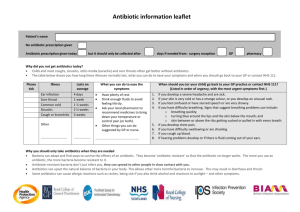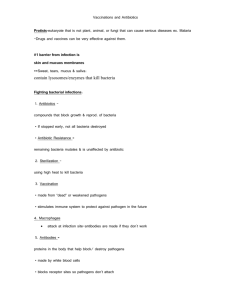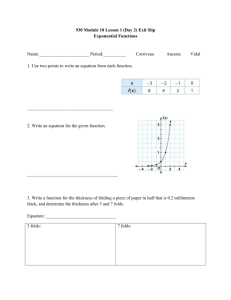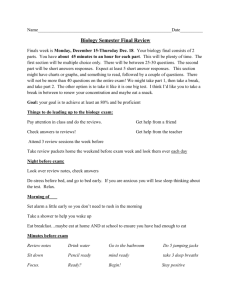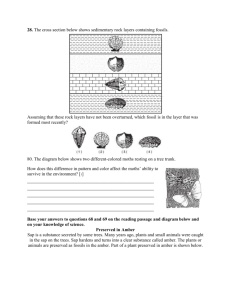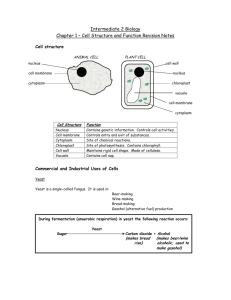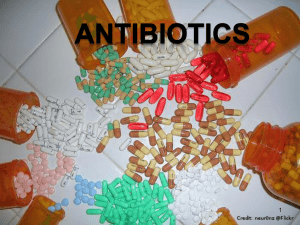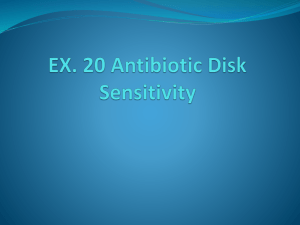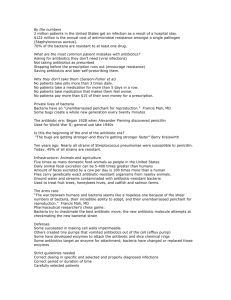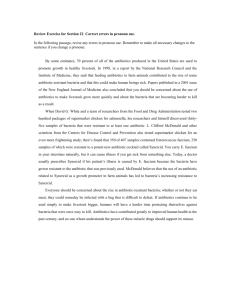Patient Name
advertisement
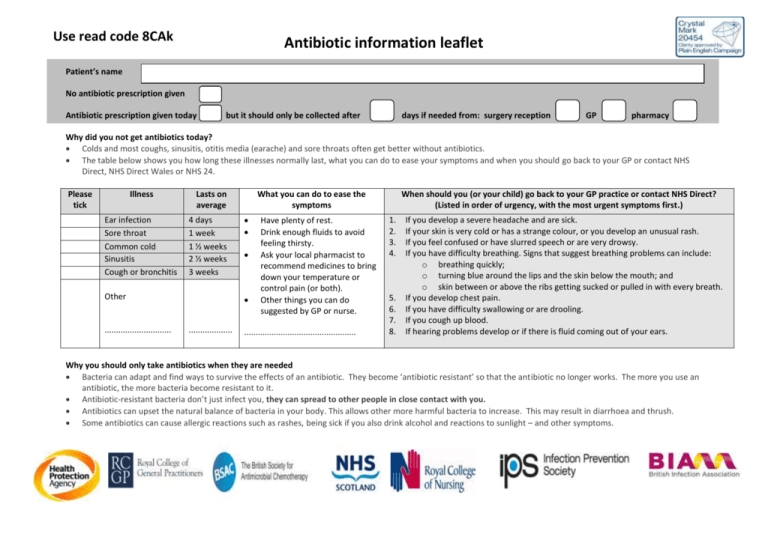
Use read code 8CAk Antibiotic information leaflet Patient’s name No antibiotic prescription given Antibiotic prescription given today but it should only be collected after days if needed from: surgery reception GP pharmacy Why did you not get antibiotics today? Colds and most coughs, sinusitis, otitis media (earache) and sore throats often get better without antibiotics. The table below shows you how long these illnesses normally last, what you can do to ease your symptoms and when you should go back to your GP or contact NHS Direct, NHS Direct Wales or NHS 24. Please tick Illness Ear infection Sore throat Common cold Sinusitis Cough or bronchitis Lasts on average 4 days 1 week 1 ½ weeks 2 ½ weeks 3 weeks Other ............................. What you can do to ease the symptoms ................... Have plenty of rest. Drink enough fluids to avoid feeling thirsty. Ask your local pharmacist to recommend medicines to bring down your temperature or control pain (or both). Other things you can do suggested by GP or nurse. ................................................. When should you (or your child) go back to your GP practice or contact NHS Direct? (Listed in order of urgency, with the most urgent symptoms first.) 1. 2. 3. 4. 5. 6. 7. 8. If you develop a severe headache and are sick. If your skin is very cold or has a strange colour, or you develop an unusual rash. If you feel confused or have slurred speech or are very drowsy. If you have difficulty breathing. Signs that suggest breathing problems can include: o breathing quickly; o turning blue around the lips and the skin below the mouth; and o skin between or above the ribs getting sucked or pulled in with every breath. If you develop chest pain. If you have difficulty swallowing or are drooling. If you cough up blood. If hearing problems develop or if there is fluid coming out of your ears. Why you should only take antibiotics when they are needed Bacteria can adapt and find ways to survive the effects of an antibiotic. They become ‘antibiotic resistant’ so that the antibiotic no longer works. The more you use an antibiotic, the more bacteria become resistant to it. Antibiotic-resistant bacteria don’t just infect you, they can spread to other people in close contact with you. Antibiotics can upset the natural balance of bacteria in your body. This allows other more harmful bacteria to increase. This may result in diarrhoea and thrush. Some antibiotics can cause allergic reactions such as rashes, being sick if you also drink alcohol and reactions to sunlight – and other symptoms.
